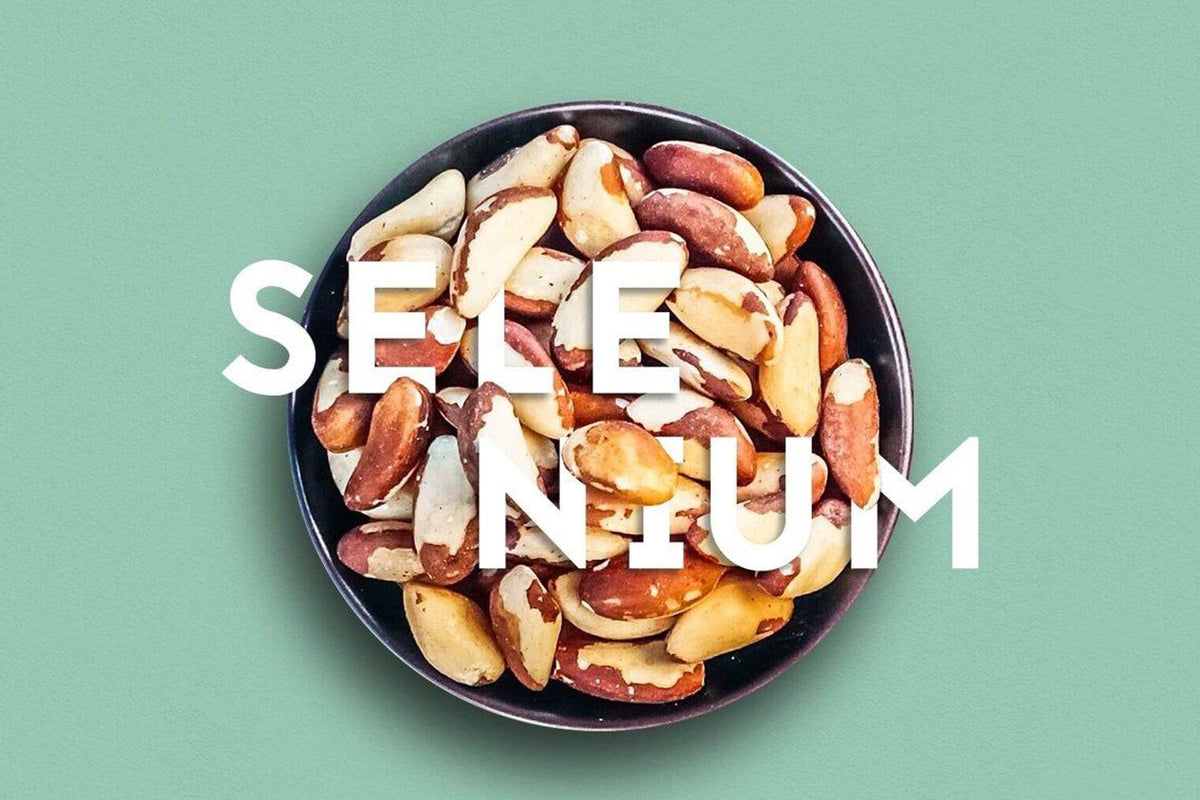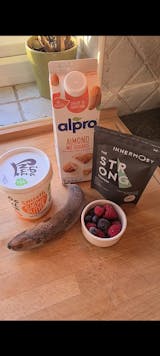Found in The Recover Capsules (as well as Brazil nuts), selenium is a trace element essential to health and well-being. While further research is required, it also holds promise in the war against chronic conditions including low-testosterone, infertility and dementia.
Selenium is a mineral found in the soil but can also be found naturally in water, meat, brazil nuts and fish. It was first recognised as having an essential biological function in the 1950s. Since then further research has been carried out giving a better understanding of the role this important compound plays in our health and well-being.
What is Selenium?
Selenium is stored largely in the skeletal muscles and is needed for a number of important functions in the body. These include the production of antioxidant enzymes and selenoproteins, which can help to fight off free radicals. It is also needed to support the thyroid, and boost immune function. It's only needed in small doses, but many people are deficient, which is where supplementation can be incredibly useful.
The Health Benefits of Selenium
Selenium is a precursor to antioxidant production and can help protect cells from oxidative stress - boosting your immune system to help overcome stress and prevent injury or illness.
The health benefits include:
- Powerful Antioxidant Properties
- Helps Maintain Stable Mental Health
- May Reduce Asthma
- Fights Heart Disease
- Maintains Thyroid Health and Function
- Immune System Booster
Selenium also has a role in aiding glucose metabolism by acting as a mimetic of insulin, improving blood sugar levels, and energy maintenance. Furthermore, a number of encouraging studies have been carried out on its application as an effective testosterone and fertility boosting compound.
Natural Sources of Selenium
In addition to Selenium supplements, the mineral can be found in many foods that you will likely already consume in your day-to-day diet.
Lots of protein foods contain Selenium, and these include:
- Lean Meats
- Seafood (particularly Tuna Fish)
- Nuts (particularly Brazil Nuts)
- Eggs
- Soy Products
- Peas
- Beans
Should I be taking Selenium?
There are a couple of ways you can decide whether you would benefit from Selenium supplements or not - whether this be through health concerns or from behaviours. For example, if you smoke or drink alcohol, you are more likely to benefit an increase in Selenium than someone that does not. Similarly, if you suffer from Crohn's disease, research has suggested that an increase in Selenium in the diet can help curb the symptoms of this disease.
Other elements to look out for include:
- Fatigue
- A Clouded Mental State
- Noticeable Hair-loss
- A Weakened Immune System
- Infertility Issues
- Experience of Muscle Weakness
Selenium supplementation is also often recommended to those in pregnancy, or perhaps suffering from high blood pressure.
What are the risks?
If following the recommended dosage for your profile as guided by health care professionals, taking Selenium poses very little risk to your overall health. However, as with all things, do make sure you're not overdoing it.
If you are unfortunate enough to experience side effects, these may come in the form of:
- Bad Breath
- Fever
- Nausea
Summary
Selenium is a dietary mineral required by your body for many different bodily functions. It can help in the fight against the negative effects of physical and mental stress, and research suggests it can help boost testosterone levels helping encourage muscle growth. Those who lead a stressful life, either in terms of work or exercise, can benefit from taking a little extra. In fact, most of us can benefit from this mineral as it can help our bodies to fight off free radicals and promote our general health. Selenium supplements are a great integration into so many diets - but make sure you only consume the tablets for a short time period.
Selenium is one of the ingredients in The Recover Capsules, which is recommended for those looking for muscle and strength gains.
























